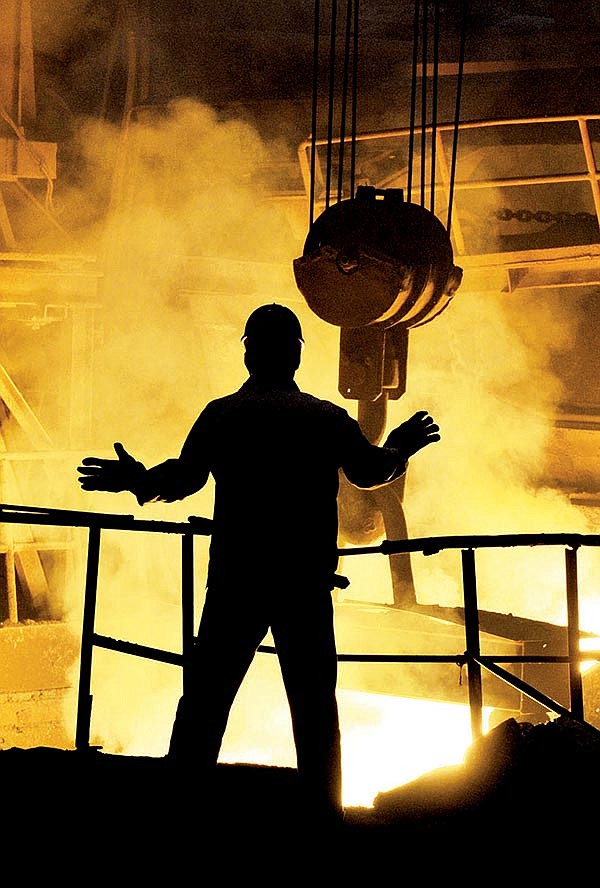LITTLE ROCK — The U.S. will impose duties on $2.8 billion in steelpipe imports from China after saying subsidies on the products may harm American steelmakers, a move that threatens to escalate trade tensions between the two countries.
The U.S. International Trade Commission on Wednesday voted 6-0 in Washington. The Commerce Department set duties in November ranging from 10.4 percent to 15.8 percent, subject to the trade commission’s ruling, on Chinese pipes used in oil wells. A preliminary ruling by the trade commission in May led Chinese producers to halt exports to the U.S., state-owned Tianjin Pipe Group Corp. has said.
The case is the largest so-called countervailing duty complaint filed against Chinese products, and was brought by groups and companies including U.S. Steel Corp. Tariffs have been a point of tension between the two nations since President Barack Obama imposed duties in September on Chinese tire imports. Obama, during a visit to Beijing on Nov. 17, pledged along with President Hu Jintao to work on easing trade frictions.
“The steel industry is a canary in the coal mine of the U.S.-China trade relations,” said Michelle Applebaum, who runs a Chicago-based equity-research company that advises investors on the industry. She owns shares in companies including Nucor Corp. and Reliance Steel and Aluminum Co.
The Commerce Department will decide in April if Chinese companies are also dumping products on the U.S. market at prices below their value, a Federal Registernotice said. That could result in additional tariffs on those companies.
Wang Baodong, a spokesman for the Chinese Embassy in Washington, declined to comment, referring queries to a Nov. 25 statement by the country’s Ministry of Commerce after the U.S. Commerce Department set the tariff rates.
In that statement Yao Jian, a spokesman for the ministry, said, “China is strongly opposed to the U.S. move of continuing with its discriminatory measures and arbitrarily raising the anti-subsidy duty rates.”
The two countries have $409 billion in annual two way trade and have swapped complaints about steel, poultry and tires as a global recession spurred countries to protect jobs. China announced on Nov. 6 the start of an antidumping probe into American cars.
The pipe case was brought by the United Steelworkers union; Pittsburgh-based U.S. Steel, the country’s biggest steelmaker; U.S. operations of Evraz Group SA, Russia’s second-largest mill; and Pennsylvania-based Wheatland Tube Co.
U.S. Steel “is pleased with the affirmative determination,” the company said in an e-mail response to questions. The “enormous surge of unfairly traded goods resulted in an overhang of inventory that crippled the domestic industry.”
Wednesday’s ruling “means a more-level field upon which to compete, and the beginnings of the end to the mercantilism being practiced by trading competitors like China,” said Nucor Chief Executive Officer Dan DiMicco.
“It is not ‘protectionism’ when countries are held accountable for the agreements and obligations they freely entered into to have access to the USA and world’s markets,” DiMicco said.
China has filed a complaint at the World Trade Organization arguing that the U.S. punishes China twice. The U.S. categorizes China as a subsidized economy, allowing higher anti-dumping duties, and imposes duties for the alleged subsidies too, according to the complaint.
Business, Pages 23 on 12/31/2009

